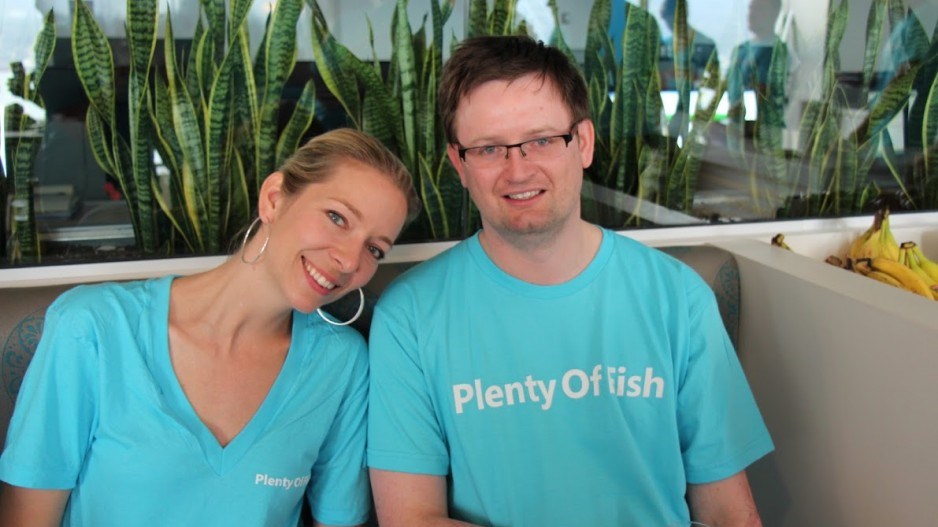Markus Frind estimates the most he ever invested in his company was $500.
“We were profitable from Day 1,” said the founder of the PlentyOfFish (POF) online dating service, “so [an investor] was not something I had to worry about.”
Frind’s biggest rival, the Match Group, announced July 14 it was buying POF and adding the Vancouver-based company to its portfolio of online dating services that includes Match.com, OkCupid and Tinder.
When POF’s sale closes later this year, Frind will have turned that $500 investment into US$575 million.
“The real cool thing about Markus, and PlentyOfFish and that success, is that it really goes against the conventional wisdom of investors,” said Boris Wertz, founder of Version One Ventures. “Here’s a guy, as a solo founder, bootstrapped a company over 12 years, never raised a single dime.”
As POF’s sole shareholder, Frind will be bringing US$575 million – minus taxes – from the all-cash deal back with him to Vancouver.
Frind is staying quiet about what he’ll do with the money, but Wertz expects the local tech community to benefit.
“Markus has, in the last few years, developed into one of the most active angel investors, tech investors in the city,” Wertz said. “[Frind’s] exit will at least keep that level and perhaps even accelerate his investment in Vancouver. We sure need it.”
Frind, however, said he prefers to invest in later-stage companies over Vancouver tech startups “because you can invest more money, and you don’t have to write $50,000 cheques.”
This year he put $21 million into Burnaby-based software developer and e-commerce company Cymax.
While Vancouver has a limited number of later-stage tech companies in which to invest, Frind said his strategy is to look at deals as they come along.
“I’m not going actively out there and seeking out a bunch of investments. I still have a day job,” Frind said.
And he anticipates keeping that day job even after the deal closes in the fourth quarter.
“This isn’t a wake. You don’t buy companies to stagnate or decline. The plan here is there’s going to be a lot of growth.”
Frind, who grew up in the northern B.C. village of Hudson’s Hope before studying computer programming at the British Columbia Institute of Technology in 1997, told Business in Vancouver in 2008 there was “not a chance” he’d sell POF. At the time, the online dating service was generating annual revenue of $10 million even when he was running the business from his own apartment. Frind was determined to see just how big POF could grow.
Seven years later, his tune has changed.
“I have a 10-month-old daughter now, and once you start having kids you start measuring time in different intervals,” Frind told BIV after the sale was announced. “Now seems as good a time as any to sell.”
The going price for a tech company like his has grown dramatically with smartphones overtaking the market and transforming the business model for free online dating sites. Instead of being driven by desktop advertising revenue as it was at its 2003 founding, POF has transitioned to premium memberships offered on mobile apps.
It’s been a success. Revenue has doubled since 2012, POF reached 100 million users this year and its annual revenue is pegged to reach $100 million in 2015.
Meanwhile, the Match Group’s parent company, IAC, announced last month it was pursuing an initial public offering for its online dating subsidiaries. Buying up the main competition would boost the Match Group’s valuation once it goes public.
While Frind isn’t certain what the short term holds, he knows what the long-term strategy is.
“If I look forward a couple of hundred years, every single living person is going to have an ancestor who met on PlentyOfFish.”




